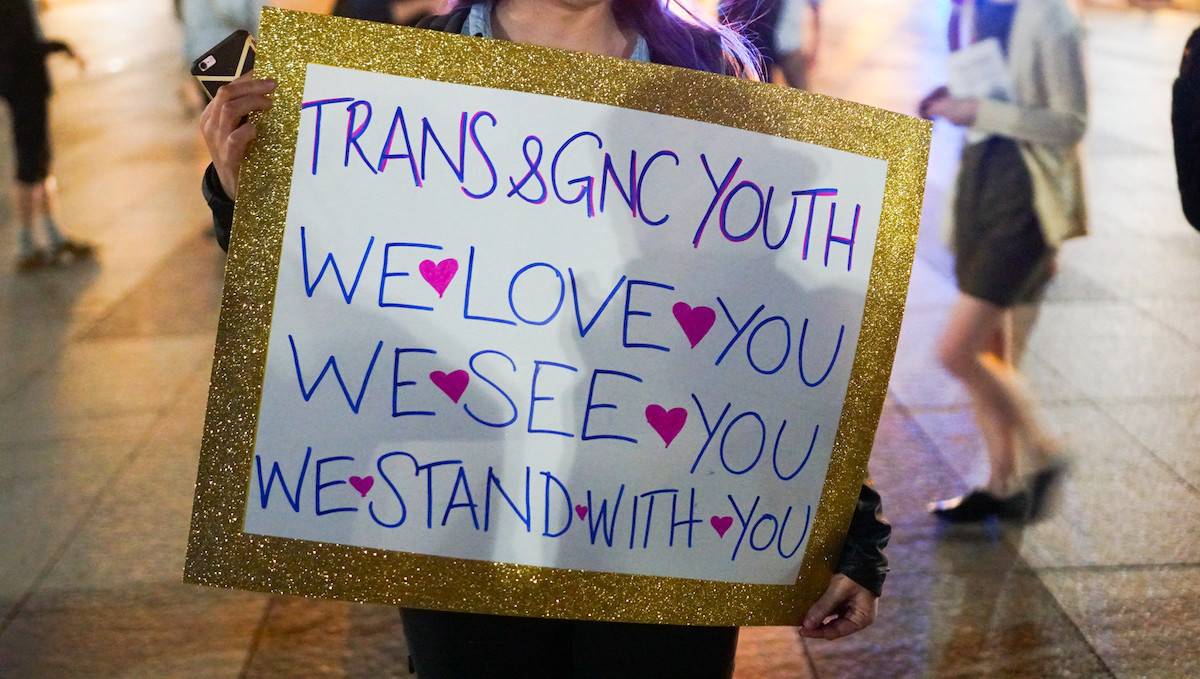Once in foster care, these youth are often met by professionals who in most cases lack training and guidance on how to properly serve transgender youth. Discrimination and bullying may lead to conflict and then increased punishing and criminalizing of transgender youth, turning the foster care system into a pipeline into the juvenile justice system for many.
Trauma compounded by racism and queerphobia further increases the impact of criminalization for TGNC youth of color, who are part of the 85% of LGBTQIA+ youth of color in juvenile justice facilities.
Government systems of care, such as foster care, juvenile justice facilities, and shelters, intend ideally to keep youth safe and connect them with resources, services, and assist with rehabilitation.
But too often, transgender youth are pipelined into these systems and then deprived of the same positive opportuntities afforded their cisgender peers, solely due to their identity or expression, and are physically and emotional harmed in the process.
Significant reforms are necessary to protect TGNC youth involved in these systems. As of 2019, approximately half of US states do not include gender identity as a protected class, and significantly fewer include gender expression.
To directly address these issues, we must add gender identity and gender expression as explicitly protected classes, advocate for the adoption of rules and regulations that prevent the criminalization of TGNC youth, and mandate practices of affirming the identities.
Policies in the system would include housing youth consistent with their identity, providing gender affirming health care, and allowing them to express themselves in ways that align with their gender identity.
One of the most important recommended practices is using chosen names and correct pronouns to refer to TGNC youth. In one study, young people who could use their chosen name in schools, work, home, and with friends experienced 71% fewer symptoms of severe depression, 34% fewer reported thoughts of suicide and a 65% decrease in suicidal attempts than those who could not use their chosen names.
Denying these practices causes significant harm to these youth, discouraging feelings of safety and contributing to serious mental health issues and self-harm. Simply put: These protections save lives.
Last week, Health and Human Services proposed a new rule that would remove existing federal law protections banning discrimination based on, among other things, gender identity, in all HHS grant-funded programs, including foster care and adoption.
While HHS seems focused on allowing faith-based providers to refuse to serve prospective LGBTQ adoptive and foster care parents, the blow would be felt hardest by LGBTQ children. This proposed rule is utterly nonsensical from a public policy perspective; without the possibility of placement in an affirming home or facility, these youth will inevitably be pushed further into the closet and pipelines to justice involvement, trafficking, and homelessness.
Transgender and gender-expansive kids should never have to hide their identities in exchange for safety. They deserve so much more than that.





